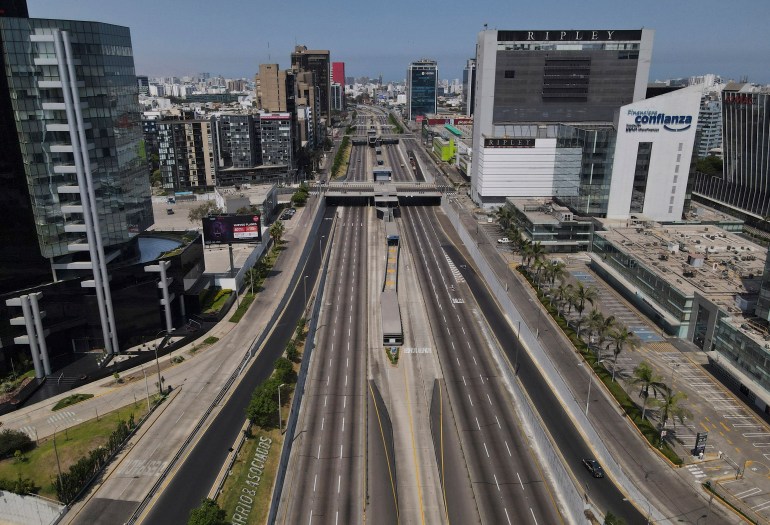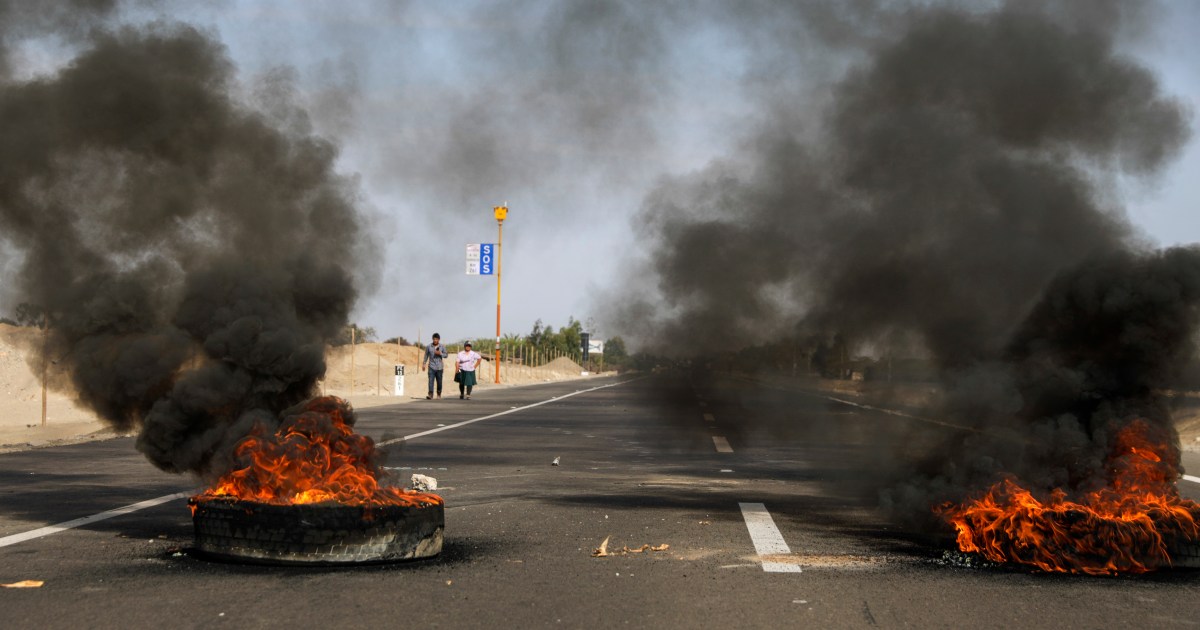Peru’s PM says lockdown could be extended beyond capital
Mandatory curfew in Lima comes amid protests against rising fuel and food costs that have led to at least four deaths.
Peru’s prime minister has said a mandatory lockdown imposed in the capital Lima and a nearby town to quell protests against rising fuel and food prices could be extended to the rest of the Andean nation, if the unrest continues.
“We are considering it,” Anibal Torres said in an interview with state-owned TV Peru on Tuesday.
“If this situation persists, [the lockdown] can be extended to the rest of the country, but I think people will understand and will not accept vandalistic acts.”
Residents of Peru’s capital city and the neighbouring port city of Callao remained under a tight curfew on Tuesday after President Pedro Castillo announced the decree shortly before midnight on Monday in response to the protests.
The unrest broke out amid anger about a spike in fuel and fertiliser costs, and saw truckers and other transport workers block major highways. At least four people have died in clashes with police over the past week, the government has said.
Under the curfew, residents of Lima, home to about one-third of Peru’s 30 million people, and Callao were ordered to stay home between 2am and 11:59pm local time on Tuesday. Castillo said the measure would last until midnight “to re-establish peace and internal order”.
It left major highways and street markets in the capital almost deserted as troops joined police in the streets to administer a state of emergency that restricted various civil liberties, including the rights to freedom of movement and against arbitrary searches.
The decree exempted essential services, such as food markets, pharmacies, clinics and rubbish collection, but there was no bus service.
“It’s a shame. We’re experiencing a terrible economic situation, brother,” said Juan Gutierrez, a 45-year-old father of four who had been waiting in vain for a bus for more than an hour so he could get to a clothing workshop where he is paid by the piece.
“Do you know what it means to lose a day? We have to work to eat,” he added.
‘Disproportionate’
The crisis made for a particularly vulnerable moment for Castillo, who won elections last year with overwhelming support from Peru’s rural population – the same group of people that is now staging the most significant protests so far in his administration.
Castillo’s popularity has waned quickly and now hovers at approximately 25 percent. He has survived two impeachment attempts and cycled through an unprecedented number of cabinet members in his eight-month administration.
The president acknowledged in recent weeks that the country faces an economic crisis that he blamed on the pandemic and the Russian war with Ukraine.

But he said the disturbances had caused “worry among workers, mothers and the population in general” and said he imposed the curfew to “re-establish peace and internal order”.
Defence Minister Jose Gavidia told journalists on Tuesday that the curfew was motivated by intelligence indicating there had been plans for broader violence, especially in central Lima.
Castillo was to meet leaders of Congress later Tuesday to “analyse the proposals and measures necessary to find a solution to the crisis facing the country”, according to a statement from parliament.
The curfew and state of emergency were sharply criticised by Peru’s official ombudsman, Walter Gutierrez. His office said it had filed an emergency motion to stop the mandatory lockdown, although the request has yet to be addressed by a judge.
The president of Congress, Maria Alva, called the lockdown mandate “unacceptable” and said legislators would continue working. She also called on Peruvians to disobey the orders.
Juan Pappier, a senior researcher at Human Rights Watch, said on Twitter that the restriction on free movement was “disproportionate” and contravenes international treaties that Peru has endorsed.




